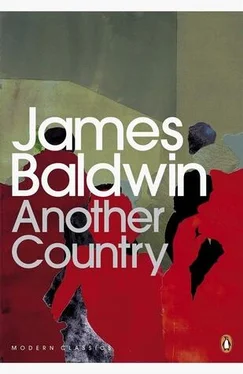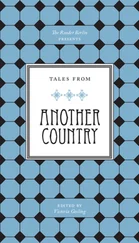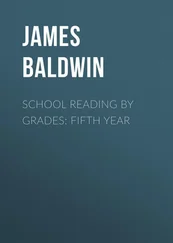He smiled— I bet mine’s bigger than yours is —but remembered occasional nightmares in which this same vanished buddy pursued him through impenetrable forests, came at him with a knife on the edge of precipices, threatened to hurl him down steep stairs to the sea. In each of the nightmares he wanted revenge. Revenge for what?
He sat down again at his worktable. The page on the typewriter stared up at him, full of hieroglyphics. He read it over. It meant nothing whatever. Nothing was happening on that page. He walked back to the window. It was daylight now, and there were people on the streets, the expected, daytime people. The tall girl, with the bobbed hair and spectacles, wearing a long, loose coat, walked swiftly down the street. The grocery store was open. The old Rumanian who ran it carried in the case of milk which had been deposited on the sidewalk. He thought again that he had better get some sleep. He was seeing Ida today, they were having lunch with Richard and Cass. It was eight o’clock.
He stretched out on the bed and stared up at the cracks in the ceiling. He thought of Ida. He had seen her for the first time about seven years ago. She had been about fourteen. It was a holiday of some kind and Rufus had promised to take her out. And perhaps the reason he had asked Vivaldo to come with him was because Vivaldo had had to loan him the money. Because I can’t disappoint my sister, man .
It had been a day rather like today, bright, cold, and hard. Rufus had been unusually silent and he, too, had been uncomfortable. He felt that he was forcing himself in where he did not belong. But Rufus had made the invitation and he had accepted; neither of them could get out of it now.
They had reached the house around one o’clock in the afternoon. Mrs. Scott had opened the door. She was dressed as though she, too, were going out, in a dark gray dress a little too short for her. Her hair was short but had lately been treated with the curling iron. She kissed Rufus lightly on the cheek.
“Hey, there,” she said, “how’s my bad boy?”
“Hey, yourself,” said Rufus, grinning. There was an expression on his face which Vivaldo had never seen before. It was a kind of teasing flush of amusement and pleasure: as though his mother, standing there in her high heels, her gray dress, and with her hair all curled, had just done something extraordinarily winning. And this flush was repeated in his mother’s darker face as she smiled — gravely — back at him. She seemed to take him in from top to toe and to know exactly how he had been getting along with the world.
“This here’s a friend of mine,” Rufus said, “Vivaldo.”
“How do you do?” She gave him her hand, briefly. The brevity was not due to discourtesy or coldness, simply to lack of habit. Insofar as she saw him at all, she saw him as Rufus’ friend, one of the inhabitants of the world in which her son had chosen to live. “Sit down, do. Ida’ll be right out.”
“She ready?”
“Lord, she been getting ready for days. Done drove me nearly wild.” They sat down. Vivaldo sat near the window which looked out on a dirty back yard and the back fire escape of other buildings. Across the way, a dark man sat in front of his half-open window, staring out. In spite of the cold, he wore nothing but an undershirt. There was nothing in the yard except cans, bottles, papers, filth, and a single tree. “If anything had happened and you hadn’t showed up, I hate to think of the weeping and wailing that would have gone on in this house.” She paused and looked toward the door which led to the rest of the apartment. “Maybe you boys like a little beer while you waiting?”
“That all you got to offer us?” Rufus asked, with a smile. “Where’s Bert?”
“Bert’s down to the store and he ain’t back yet. You know how your father is. He going to be sorry he missed you.” She turned to Vivaldo. “Would you like a glass of beer, son? I’m sorry we ain’t got nothing else—”
“Oh, beer’s fine,” said Vivaldo, looking at Rufus, “I’d love a glass of beer.”
She rose and walked into the kitchen. “What your friend do? He a musician?”
“Naw,” said Rufus, “he ain’t got no talent.”
Vivaldo blushed. Mrs. Scott returned with a quart bottle of beer and three glasses. She had a remarkably authoritative and graceful walk. “Don’t you mind my boy,” she said, “he’s just full of the devil, he can’t help it. I been trying to knock it out of him, but I ain’t had much luck.” She smiled at Vivaldo as she poured his beer. “You look kind of shy. Don’t you be shy. You just feel as welcome here as if you was in your own house, you hear?” And she handed him his glass.
“Thank you,” said Vivaldo. He took a swallow of the beer, thinking she’d probably be surprised to know how unwelcome he felt in his own house. And then, again, perhaps she wouldn’t be surprised at all.
“You look as though you dressed up to go out someplace, too, old lady.”
“Oh,” she said, deprecatingly, “I’m just going down the block to see Mrs. Braithwaite. You remember her girl, Vickie? Well, she done had her baby. We going to the hospital to visit her.”
“Vickie got a baby? Already? ”
“Well, the young folks don’t wait these days, you know that.” She laughed and sipped her beer.
Rufus looked over at Vivaldo with a frown. “Damn,” he said. “How’s she doing?”
“Pretty well — under the circumstances .” Her pause suggested that the circumstances were grim. “She had a right fine boy, weighed seven pounds.” She was about to say more; but Ida entered.
She was already quite tall, nearly as tall as she was going to be. She, too, had been dealing in hot combs and curling irons, Vivaldo’s later impression that she had been in pigtails was due to the fact that her hair had been curled tightly all over her head. The dress she wore was long and blue and full, of some rustling material which billowed above her long legs.
She came into the room, looking only at her brother, with an enormous, childlike smile. He and Rufus stood up.
“You see, I got here,” said Rufus, smiling, and he and his sister kissed each other on the cheek. Their mother stood watching them with a proud, frowning smile.
“I see you did,” said Ida, moving a little away from him, and laughing. Her delight in seeing her brother was so real that Vivaldo felt a kind of anguish, thinking of his own house, his own sister. “I been wondering if you’d make it — you keep so busy all the time.”
She said the last with a wry, proud, grownup exasperation, as one submitting to the penalties imposed by her brother’s power and glory. She had not looked at Vivaldo, though she was vividly aware of him. But Vivaldo would not exist until Rufus permitted it.
He permitted it now, tentatively, with one hand on his sister’s neck. He turned her toward Vivaldo. “I brought a friend of mine along, Vivaldo Moore. This is my sister, Ida.”
They shook hands. Her handshake was as brief as her mother’s had been, but stronger. And she looked at Vivaldo differently, as though he were a glamorous stranger, glamorous not only in himself and his color but in his scarcely to-be-imagined relation to her brother.
“Well, now, where,” asked Rufus, teasingly, “do you think you’d like to go, young lady?”
And he watched her, grinning. But there was a constraint in the room now, too, which had not been there before, which had entered with the girl who would soon be a woman. She stood there like a target and a prize, the natural prey of someone — somewhere — who would soon be on her trail.
“Oh, I don’t care,” she said. “Anywhere you-all want to go.”
Читать дальше












